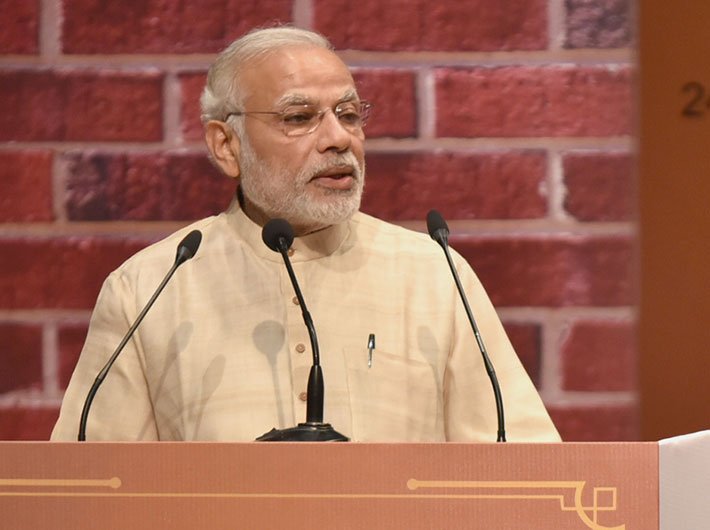“This government will continue to follow sound and prudent economic policies, to ensure that India has a bright future in the long run. We will not take decisions for short term political point scoring. We will not shy away from taking difficult decisions, if those decisions are in the interest of the country. Demonetisation is an example. It has short term pain but will bring long term gain,” said prime minister Narendra Modi on Saturday.
Speaking at the inauguration of National Institute of Securities Markets (NISM) campus at Patalganga, Modi said that this is a time of slowdown in the global economy.
“Developed countries and emerging markets are both facing slow growth. Against this background, India is being seen as a bright spot. Growth is projected to remain among the highest in the world.“
“India’s place as the fastest growing large economy has not come about by accident. To see how far we have travelled, we should look back to 2012-13. The fiscal deficit had reached alarming levels. The currency was falling sharply. Inflation was high. The current account deficit was rising. Confidence was low and foreign investors were turning away from India. India was considered the weakest of the BRICS nations,” he added.
The prime minister said that in less than three years, this government has transformed the economy. “We have cut the fiscal deficit target every year and also achieved it every year. The current account deficit is low. Even after the redemption of loans taken under the special currency swap in 2013, foreign exchange reserves are high. Inflation is low, running at less than 4 per cent compared to double digit inflation under the previous government. Public investment has increased largely, even while the overall fiscal deficit has been cut. A new monetary policy framework has been introduced by law with an inflation target.”
He went on to say that the Constitutional Amendment on Goods and Services Tax had “remained pending for years. It has been passed and the long awaited GST will soon be a reality. We have made progress on improving the ease of doing business. As a result of all these policies, Foreign Direct Investment has reached record levels. By claiming that demonetisation has stopped a fast moving car, our critics too have acknowledged the speed of our progress”.
Modi said that financial markets can play an important role in the modern economy. They help in mobilizing savings. They channel the savings towards productive investments.
However, history has shown that financial markets can also do damage, if not properly regulated. It is to ensure good regulation that the Securities and Exchange Board of India, - SEBI - was established by the government. SEBI also has a role to promote the development of healthy securities markets.
Recently, the Forward Markets Commission has been abolished. SEBI has been given the task of regulating commodity derivatives also. This is a big challenge. In the commodity markets, the spot market is not regulated by SEBI. Agricultural markets are regulated by states. And many commodities are purchased directly by the poor and the needy, not by investors. Hence the economic and social impact of commodity derivatives is more sensitive, he said.
